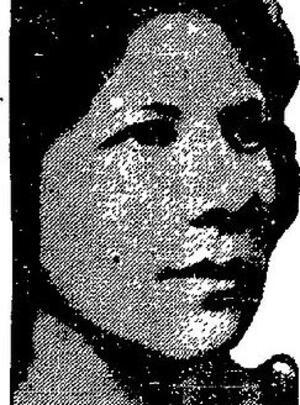"New York Times" reviews Yezierska's "Bread Givers"
Anzia Yezierska's best-known novel, Bread Givers, received a glowing review in the New York Times on September 13, 1925. "Bread Givers enables us to see our life more clearly, to test its values, to reckon up what it is that our aims and achievements may mean. It has a raw, uncontrollable poetry and a powerful, sweeping design," the Times wrote. Yezierska, dubbed the "Cinderella of the Sweatshop" by the popular press, wrote Bread Givers about the daughter of an immigrant family who struggles against her Orthodox father's rigid idea of Jewish womanhood.
Yezierska immigrated as a young girl with her family to the United States in the early 1890s. Her fiction centered upon the lives of Eastern European Jewish immigrants in New York City around the turn of the century. Her work featured female protagonists struggling with issues of economic survival, Americanization, and the tension between immigrant parents and their children.
In addition to Bread Givers, Yezierska wrote a number of other books. Her first, a collection of short stories entitled Hungry Hearts, was turned into a 1922 silent film. The film's producer, Samuel Goldwyn, offered Yezierska a $100,000 contract to write screenplays. Yezierska moved to Hollywood but was unable to feel at home there and moved back to New York City. Yezierska's first novel, 1923's Salome of Tenements, was also made into a silent film, though it did not become as well known.
Sources: New York Times, September 13 1925; Jewish Women in America: An Historical Encyclopedia, pp. 1520-1522; www.myjewishlearning.com.



